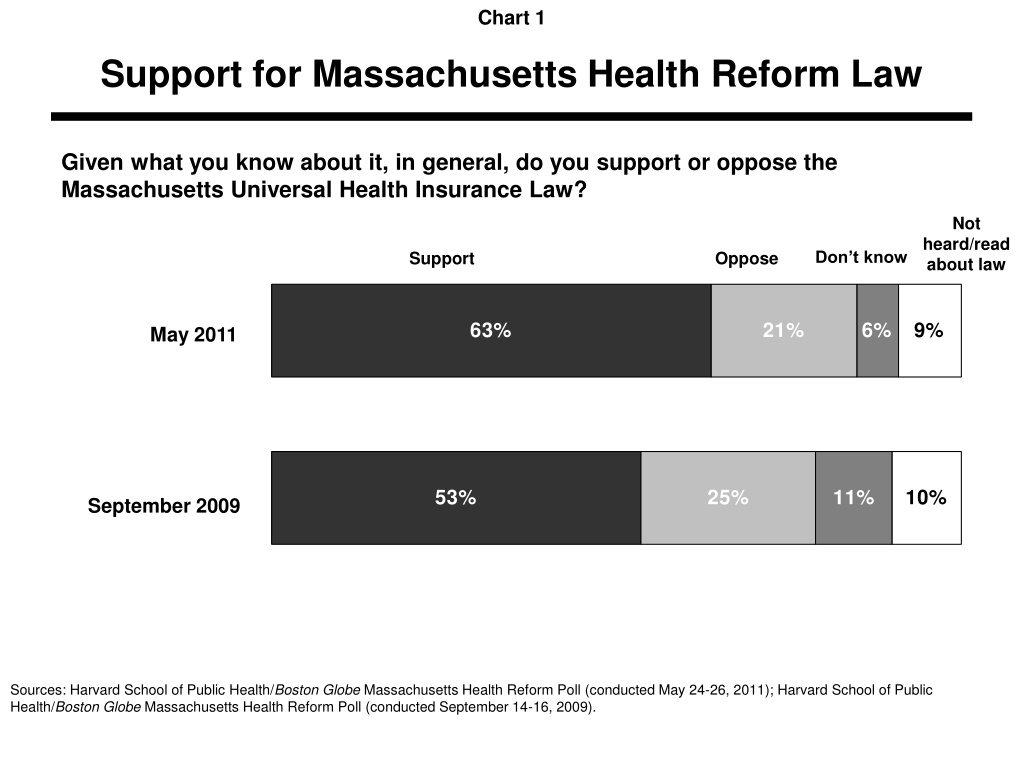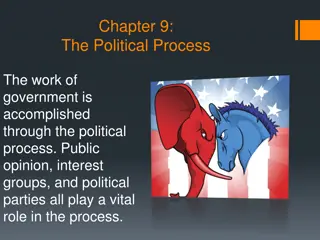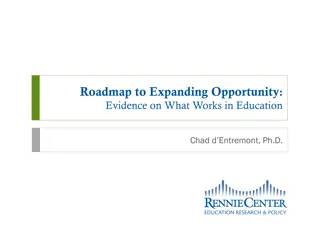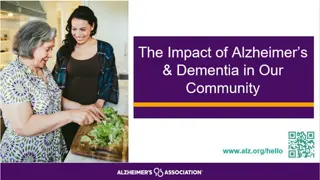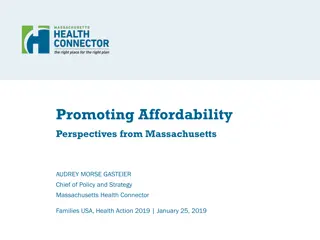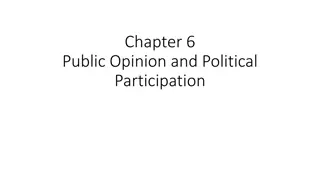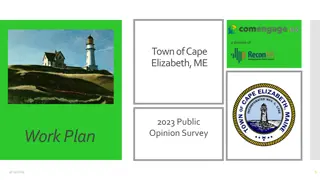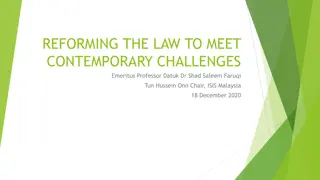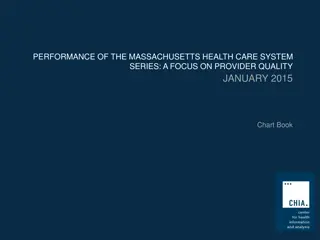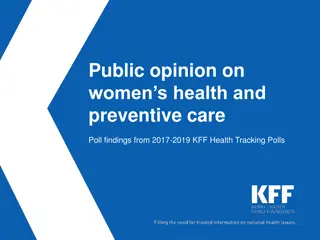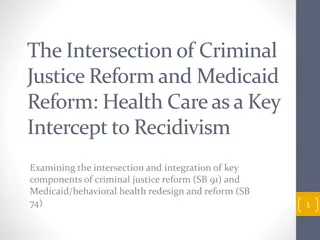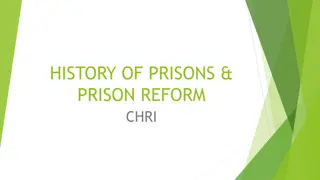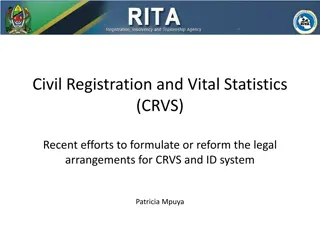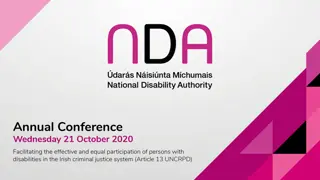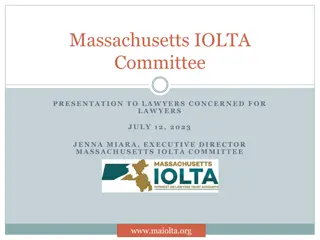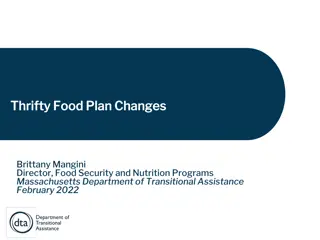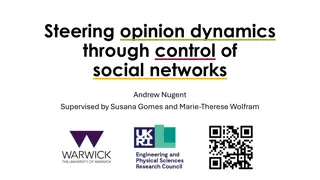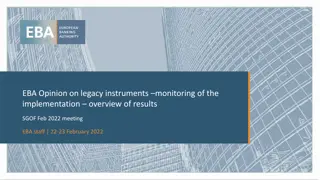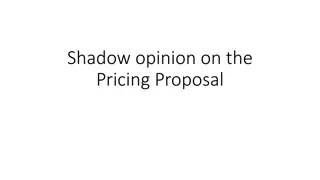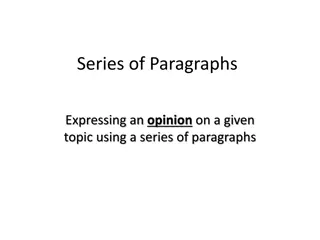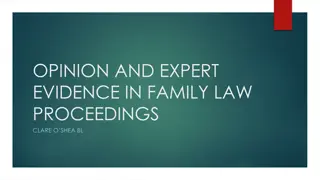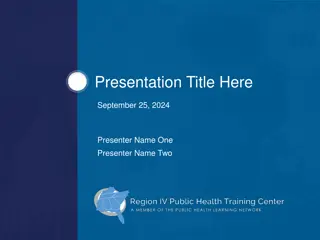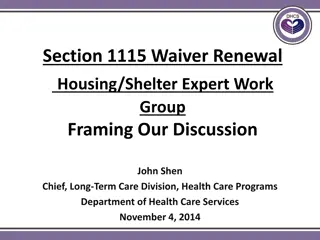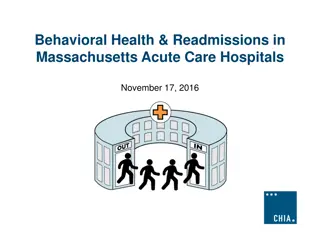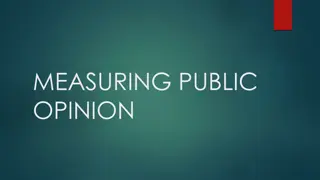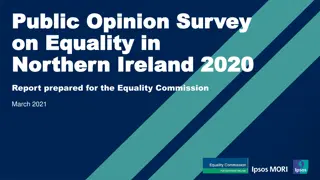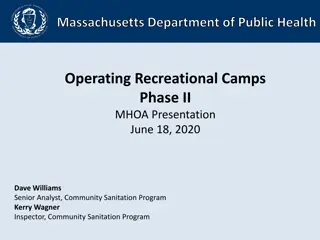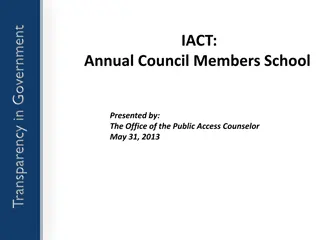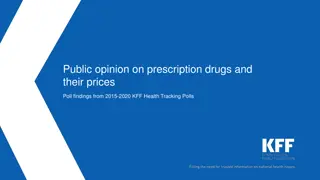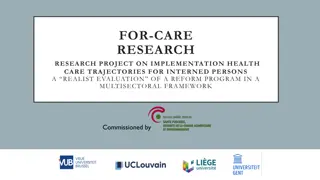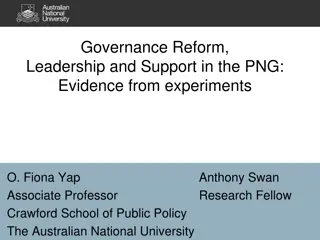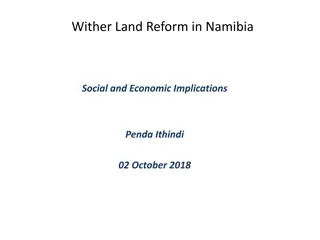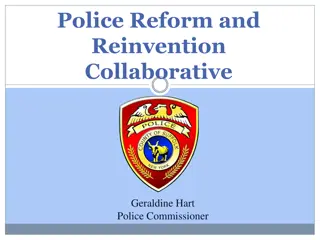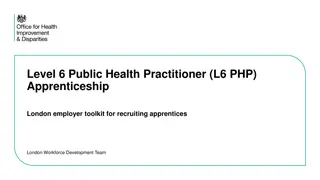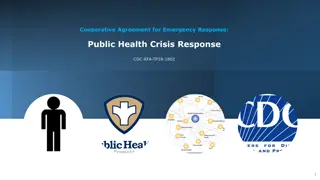Public Opinion on Massachusetts Health Reform Law
Public perception of the Massachusetts Universal Health Insurance Law is divided, with varying levels of support shown over the years. While a majority support the law overall, opinions on specific aspects like requiring uninsured residents to purchase health insurance are more nuanced. Additionally, there are differing views on whether the law should be continued as is, with changes, or repealed. Furthermore, opinions vary on the perceived impact of the law on aspects such as healthcare costs, quality of care, ability to pay medical bills, and appointment wait times.
Download Presentation

Please find below an Image/Link to download the presentation.
The content on the website is provided AS IS for your information and personal use only. It may not be sold, licensed, or shared on other websites without obtaining consent from the author. Download presentation by click this link. If you encounter any issues during the download, it is possible that the publisher has removed the file from their server.
E N D
Presentation Transcript
Chart 1 Support for Massachusetts Health Reform Law Given what you know about it, in general, do you support or oppose the Massachusetts Universal Health Insurance Law? Not heard/read about law Don t know Support Oppose 63% 21% 6% 9% May 2011 53% 25% 11% 10% September 2009 Sources: Harvard School of Public Health/BostonGlobe Massachusetts Health Reform Poll (conducted May 24-26, 2011); Harvard School of Public Health/BostonGlobe Massachusetts Health Reform Poll (conducted September 14-16, 2009).
Chart 2 Support for Massachusetts Health Reform Law The law requires that all uninsured Massachusetts residents either purchase health insurance or pay a fine. If a state agency determines that a person can t afford a policy, they would not be required to buy one or they would receive help paying part or all of their insurance premiums. Do you support or oppose state government requiring uninsured residents to purchase health insurance? Don t know Support Oppose 51% 44% 4% May 2011 58% 35% 7% September 2009* *Note: 2009 question wording is slightly different: The law requires that all uninsured Massachusetts residents either purchase health insurance or pay a fine of up to 50% of what health insurance would cost. If a state agency determines that a person can t afford a policy, they would not be required to buy one. People whose incomes fall below a certain level would receive help paying part or all of their insurance premiums. Do you support or oppose state government requiring uninsured residents to purchase health insurance? Sources: Harvard School of Public Health/BostonGlobe Massachusetts Health Reform Poll (conducted May 24-26, 2011); Harvard School of Public Health/BostonGlobe Massachusetts Health Reform Poll (conducted September 14-16, 2009).
Chart 3 Opinion on Future Direction of Health Reform Law Do you think the Massachusetts Health Insurance Reform Law should be repealed, continued as the law currently stands, or continued but with some changes made? 9% Repealed 10% May 2011 September 2009 23% Continued as law currently stands 20% 51% Continued with changes 51% 7% Don't know 9% Sources: Harvard School of Public Health/Boston Globe Massachusetts Health Reform Poll (conducted May 24-26, 2011); Harvard School of Public Health/Boston Globe Massachusetts Health Reform Poll (conducted September 14-16, 2009).
Chart 4 Perception of Whether the Law is Helping or Hurting Massachusetts Residents Own Situation Generally speaking, do you think the Massachusetts Health Insurance Reform Law is helping, hurting or not having much impact on Not much impact Is Is helping hurting 23% 33% 30% The cost of your care The quality of your care 22% 52% 14% Your ability to pay medical bills if you were to get sick 27% 47% 13% The length of time it takes for you to get an appointment with a doctor 13% 53% 17% Source: Harvard School of Public Health/Boston Globe Massachusetts Health Reform Poll (conducted May 24-26, 2011).
Chart 5 Law s Impact on Rising Cost of Health Care in Massachusetts As you may know, the cost of health care has been rising for some people over the past few years. Do you think the rising cost of health care in Massachusetts is due mainly to this Health Insurance Law or due mainly to other factors? Due mainly to this health insurance law 20% Due mainly to other factors 72% 6% Don't know Source: Harvard School of Public Health/Boston Globe Massachusetts Health Reform Poll (conducted May 24-26, 2011).
Methodology The Massachusetts Health Reform Poll was conducted by the Harvard School of Public Health and the Boston Globe. Representatives of the two organizations worked closely to develop the survey questionnaire and analyze the results of the poll. The Boston Globe and the Harvard School of Public Health are publishing independent summaries of the poll s findings, and each organization bears sole responsibility for the work that appears under its name. The Harvard School of Public Health and the Boston Globe paid for the survey and related expenses. The project team was lead by Robert J. Blendon, a professor who holds joint appointments in the Harvard School of Public Health and the Harvard Kennedy School, and Gideon Gil, Health and Science editor of the Boston Globe. The Harvard research team also included Gillian K. SteelFisher, Johanna R. Mailhot and Kathleen J. Weldon. Interviews were conducted with 537 randomly selected Massachusetts state residents age 18 and older via telephone (including cell phones and land lines) by Social Science Research Solutions of Media, Pennsylvania. Interviews were conducted in English and Spanish. The interviewing period was May 24-26, 2011. The data were weighted to reflect the demographics of the state s adult population as described by the U.S. Census. When interpreting these findings, one should recognize that all surveys are subject to sampling error. Results may differ from what would be obtained if the whole Massachusetts adult population had been interviewed. The sampling error is 5.32 percentage points at the 95% confidence level. The size of this error varies with the number of persons surveyed and the magnitude of difference in responses to each question.
